Are you in the market for a new landscaping truck? Look no further! In this article, we will provide you with everything you need to know about landscaping trucks for sale. From different types of trucks to key features and tips on buying, we’ve got you covered. So let’s dive right in and find your dream landscaping truck!
Types of Landscaping Trucks
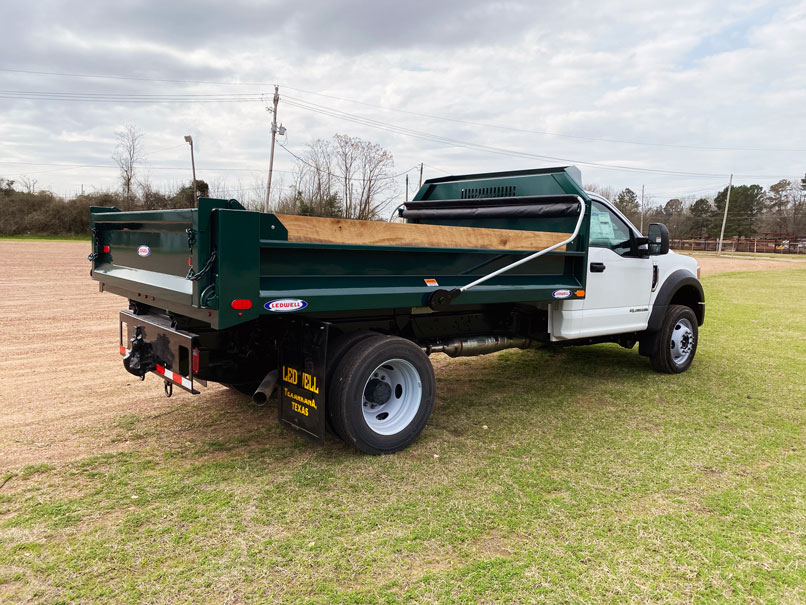
When it comes to landscaping trucks, there are a few different types to choose from. Each type has its own unique features and benefits, so it’s important to understand which one would best suit your needs.
Flatbed Trucks
Flatbed trucks are popular among landscapers because they offer an open space for hauling large equipment and materials. They have a flat bed with no sides or roof, making it easy to load and unload items. These trucks also have the option for a hydraulic lift gate, making it easier to move heavy loads.
Flatbed trucks come in different sizes and weight capacities, so make sure to consider the weight of your equipment when choosing one. They also have the option for a gooseneck or fifth-wheel hitch, allowing for even more towing capacity.
Dump Trucks
Dump trucks are another common choice for landscapers. These trucks have a bed that can be raised to dump out materials like dirt, gravel, and debris. This makes them perfect for projects that involve hauling a lot of heavy materials.
There are two types of dump trucks: standard dump trucks and articulated dump trucks. Standard dump trucks have a single rigid frame, while articulated dump trucks have a hinge between the cab and the dump body, allowing for better maneuverability and stability on uneven terrain.
Pickup Trucks
For small landscaping businesses, pickup trucks may be a more affordable and practical choice. These trucks have a smaller bed compared to flatbed and dump trucks, but still offer enough space to haul basic equipment. They also have the added benefit of being able to be used as a personal vehicle outside of work.
Pickup trucks come in different sizes and models, so you can choose one that best fits your needs. Some come with four-wheel drive, making them suitable for off-road projects.
Box Trucks
Box trucks, also known as cube trucks, are another option for landscapers. These trucks have an enclosed cargo area, making them ideal for transporting tools and materials while keeping them protected from weather and theft.
While box trucks may not have as much towing or hauling capacity as other types of trucks, they offer the advantage of being customizable. You can add shelves, racks, and compartments to make the most of the storage space.
Conclusion for Types of Landscaping Trucks
When choosing a landscaping truck, consider the type of work you do and the equipment you need to transport. Flatbed trucks are great for larger items, dump trucks for heavy materials, pickup trucks for smaller businesses, and box trucks for secure storage. Ultimately, the right truck will depend on your specific needs and budget.
Key Features to Consider
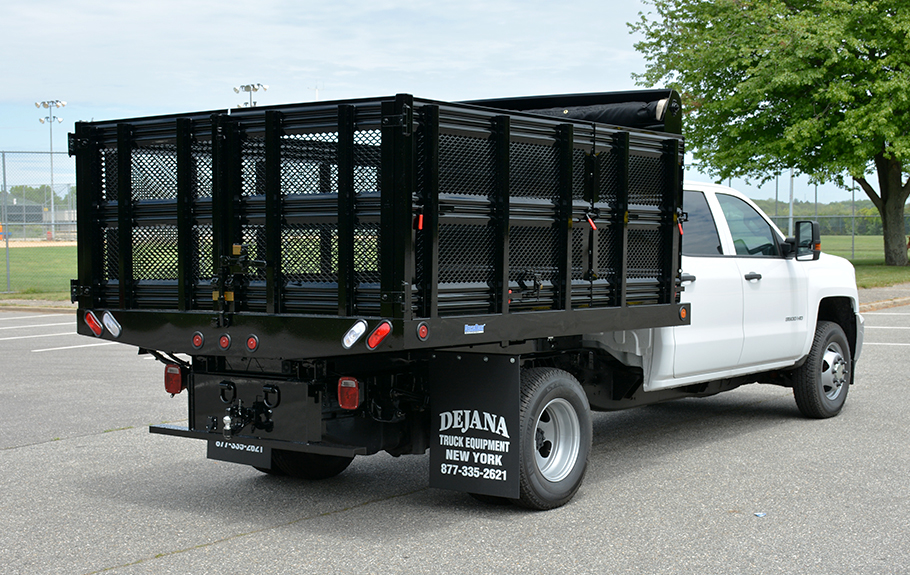
Now that we’ve discussed the different types of landscaping trucks, let’s take a look at some key features you should consider when making your purchase.
Towing Capacity
One of the most important factors to consider is the towing capacity of the truck. This refers to the maximum weight it can tow behind it. Make sure to check the truck’s manual or speak with a salesperson to determine the towing capacity, and ensure it aligns with the weight of your equipment.
Payload Capacity
In addition to towing capacity, it’s also essential to consider the payload capacity, which is the maximum weight the truck bed can hold. This includes both equipment and passengers. Exceeding the payload capacity can damage the truck and put you at risk on the road.
Fuel Efficiency
Fuel costs can quickly add up, so it’s important to choose a truck with good fuel efficiency. Look for trucks with newer engines and features like automatic start/stop to save on fuel consumption.
Durability
Landscaping work can be tough on trucks, so durability is crucial. Look for trucks with sturdy frames, quality suspension, and strong towing capabilities. Additionally, consider the maintenance and repair costs of the truck when making your purchase.
Conclusion for Key Features
When buying a landscaping truck, make sure to prioritize features that align with your specific needs. Towing and payload capacity, fuel efficiency, and durability are all essential factors to keep in mind.
Tips for Buying a Landscaping Truck
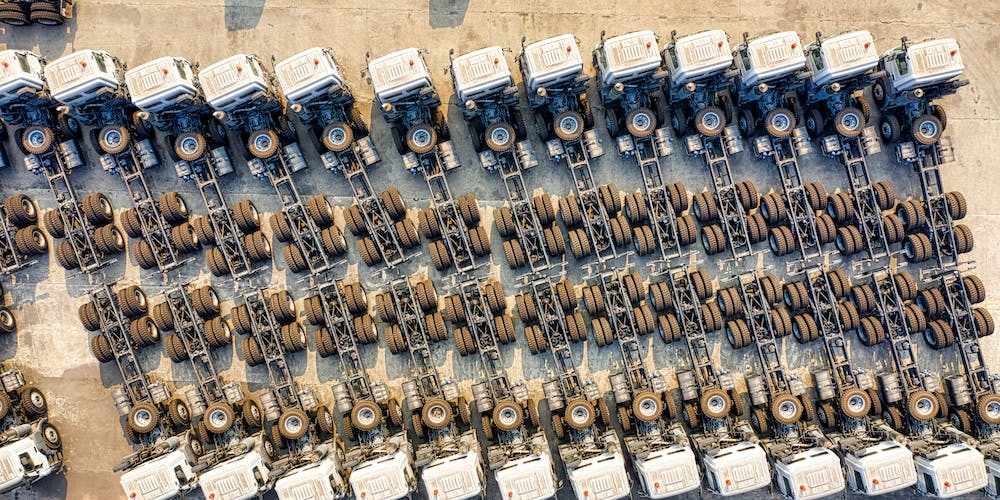
Now that you know the types of trucks and key features to consider, here are some additional tips to help you make the best purchase decision.
Do Your Research
Before making any big purchase, it’s always wise to do your research. Look into different truck models, compare prices, and read reviews from other landscapers. This will give you a better idea of what to expect and ensure you get the best deal.
Consider Your Budget
Set a budget before starting your search for a landscaping truck. While it may be tempting to go for a newer or fancier model, remember that a truck is an investment for your business. You don’t want to overspend and put yourself in financial strain.
Test Drive the Truck
Just like buying a regular car, it’s important to test drive a landscaping truck before making a decision. This will allow you to get a feel for how it handles and if it meets your needs. Don’t be afraid to ask the salesperson questions and take your time during the test drive.
Check for Warranty and Maintenance Plans
Some dealerships offer warranties and maintenance plans for their trucks. This can provide peace of mind and potentially save you money in the long run. Make sure to inquire about these options when considering a truck.
Conclusion for Tips on Buying a Landscaping Truck
Buying a landscaping truck is a big decision, so take your time and consider all factors before making a purchase. Do your research, set a budget, test drive the truck, and look into warranty and maintenance plans.
FAQs about Landscaping Trucks
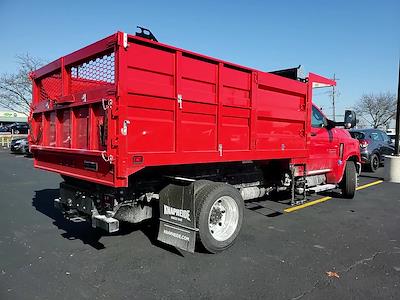
What are the most important features to consider when buying a landscaping truck?
When buying a landscaping truck, it’s important to consider the towing and payload capacity, fuel efficiency, durability, and your budget.
Are there any specific brands or models that are best for landscaping trucks?
There is no one-size-fits-all answer to this question. It ultimately depends on your specific needs and budget. However, some popular brands for landscaping trucks include Ford, Chevrolet, and Ram.
Can I use a regular pickup truck for landscaping work?
Yes, you can use a regular pickup truck for landscaping work if it meets your needs. However, keep in mind that it may not have as much towing or hauling capacity as other types of trucks.
Should I buy a new or used landscaping truck?
Both options have their own benefits and drawbacks. A new truck may come with a warranty and updated features, but it will also be more expensive. A used truck may be more budget-friendly, but it may have more wear and tear.
Is it worth investing in a landscaping truck for my business?
This depends on the type and frequency of work you do. If you often need to transport heavy equipment and materials, a landscaping truck would be a valuable investment. However, if your work is primarily smaller-scale, a regular pickup truck may suffice.
Conclusion
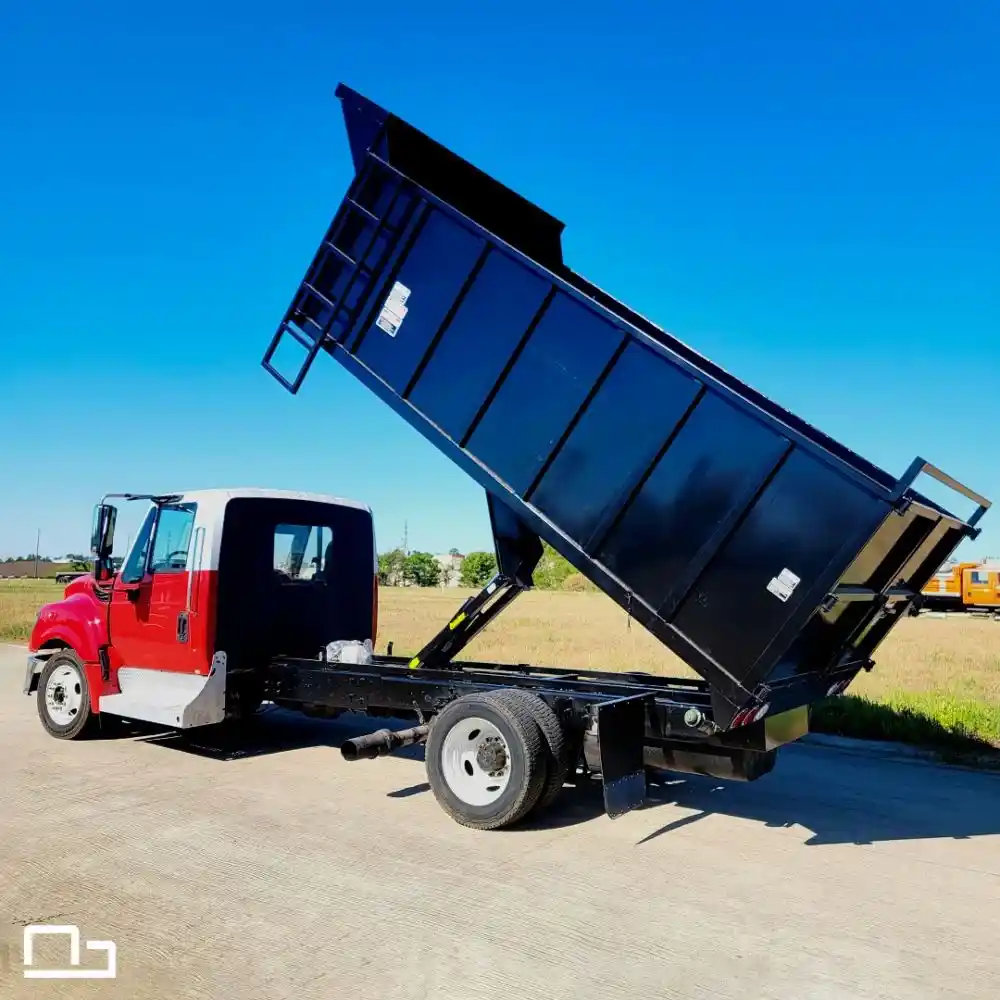
Landscaping trucks are an essential tool for any landscaping business, providing the means to transport equipment and materials to job sites. When looking for a landscaping truck for sale, make sure to consider the different types, key features, and tips for buying to ensure you make the best purchase decision for your business. With this comprehensive guide, we hope you are now well-equipped to find your perfect landscaping truck.
